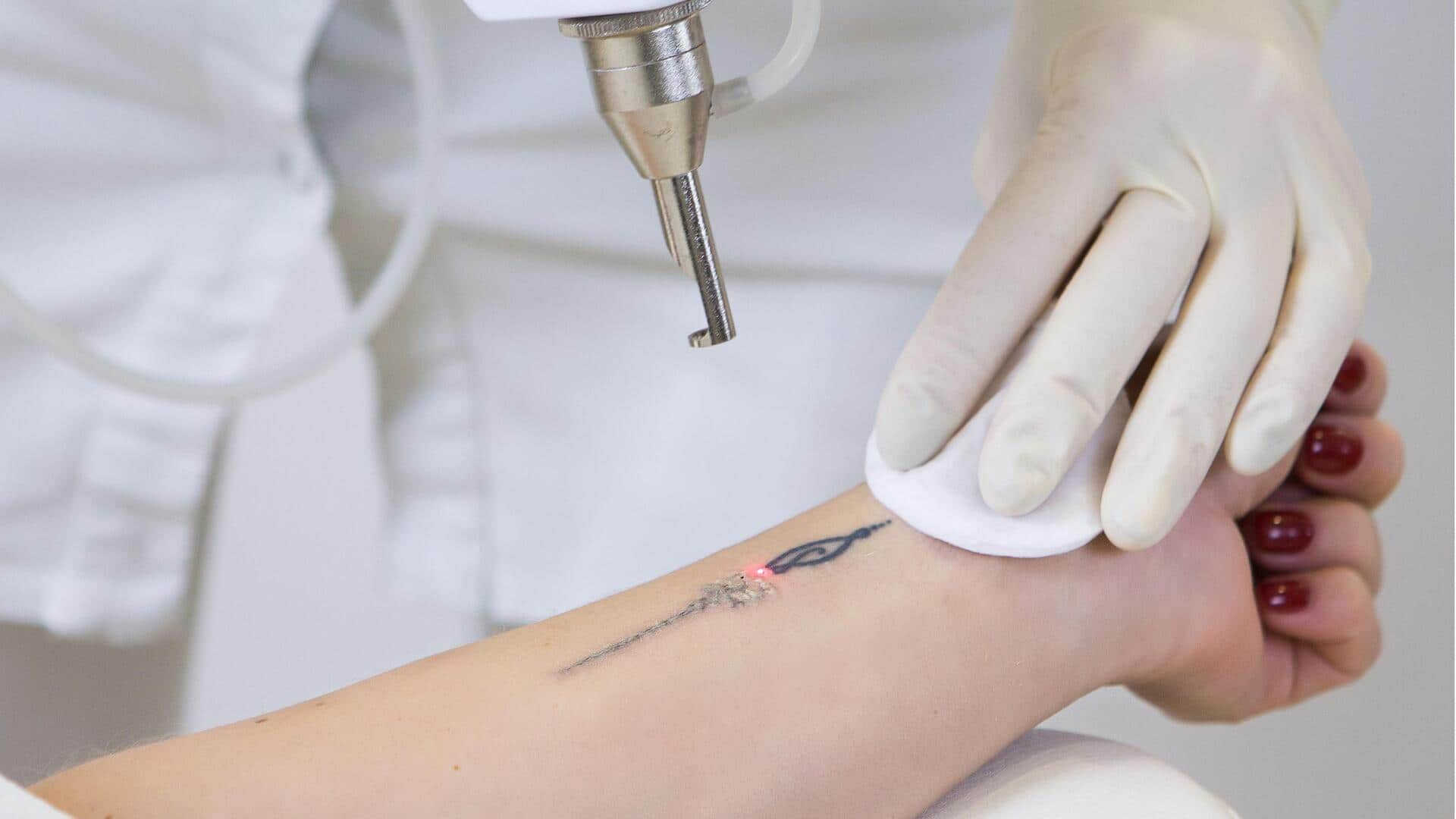
Your handbook to tattoo removal methods
What's the story
Have you ever had a tattoo that seemed like a fantastic idea at the time, but later became a source of regret? The good news is that mistakes don't have to be permanent.
Today is National Tattoo Removal Day, a celebration of letting go of past tattoos and embracing a clean, ink-free appearance.
Take a look at the different techniques accessible for removing tattoos.
Laser
Laser tattoo removal
Laser tattoo removal uses focused light beams to break down tattoo ink particles in the skin. These smaller bits are then cleaned up by your body's defense system.
It takes a few sessions where the laser is adjusted to treat what's left, depending on your tattoo's size, color, and how your skin reacts.
It might hurt a bit and cause short-term redness or swelling.
Chemical
Chemical peels
Chemical peels use specific chemicals such as trichloroacetic acid to remove tattoos.
A skilled practitioner applies the chemical directly onto the tattooed area, causing the outer skin layers to peel off slowly.
This peeling takes the tattoo ink with it, and new skin grows to replace the old tattooed skin. The strength of the treatment depends on how big and colorful the tattoo is.
Surgery
Surgical excision
Surgical excision is a procedure where a surgeon removes the skin containing a tattoo. They then stitch the remaining skin back together.
This works for small tattoos but not for larger ones, as it could lead to more scarring.
For bigger tattoos, methods like laser treatment or chemical peels might be more effective and less likely to cause noticeable scarring.
Scraping off
Dermabrasion
Dermabrasion is a surgery that removes tattoos by gently scraping off the skin's top layers, using a special tool. An anesthetic is used to avoid pain during the procedure.
Once the tattooed skin is gone, a healing wound forms.
As it heals, new skin will grow over the area. There might be temporary discomfort and redness, but this is normal.
Creams
Tattoo removal creams
Tattoo removal creams can help remove tattoos, but they're not as good as other methods.
You can use these creams at home by putting them on the tattooed area.
However, it's important to be aware that many tattoo removal creams contain acids that could potentially cause skin irritation or damage.
The process of using these creams is gradual and requires patience.
Important
What you should know before getting a tattoo removed
Laser tattoo removal is commonly seen as the best method, though it's pricier than surgical excision, dermabrasion, and chemical peels.
While surgical excision may involve a higher initial expense, it could be a practical choice for smaller tattoos needing complete removal.
Dermabrasion and chemical peels could be less costly alternatives, but they might need several sessions, which increases the total expense.